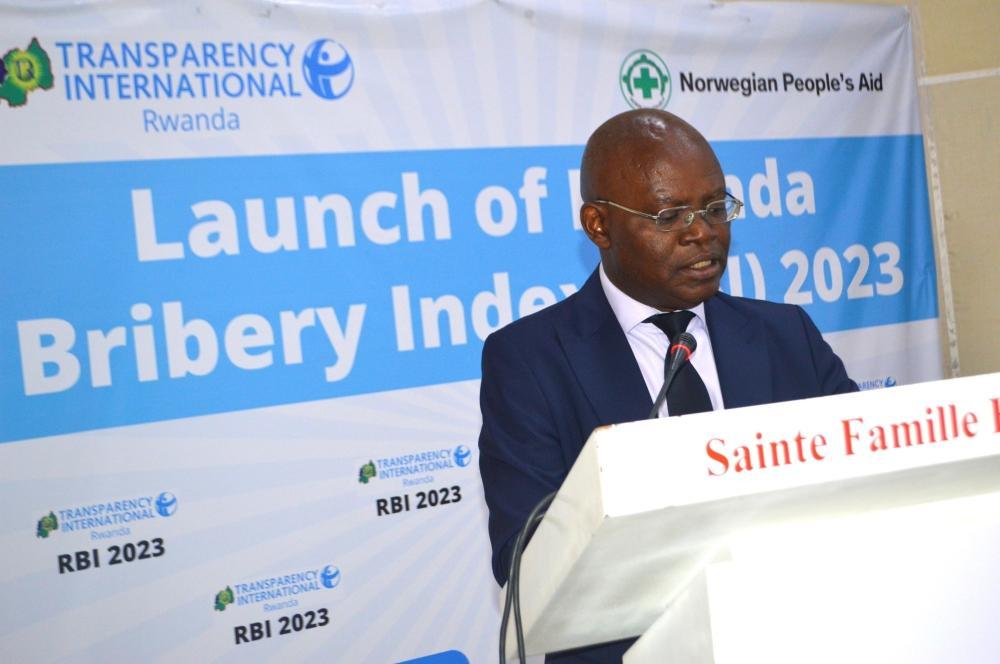Rwanda has made impressive strides in the fight against corruption, according to the 2023 Corruption Perceptions Index (CPI) released by Transparency International on January 30, 2024.
The country’s score has risen to 53%, up from 51% last year. This improvement helps Rwanda maintain its position as one of the least corrupt countries in Sub-Saharan Africa, and it now ranks 49th globally, up from 54th in 2022.
Rwanda stands out in East Africa, where it ranks first. Tanzania follows with a score of 40%, and Kenya, Uganda, the Democratic Republic of the Congo, and Burundi all fall behind with much lower scores. While Rwanda is making progress, the wider Sub-Saharan region faces ongoing corruption challenges, with an average score of just 33%. Nearly 90% of countries in the region still score below 50.
Apollinaire Mupiganyi, the Executive Director of Transparency International Rwanda, credits the country’s commitment to tackling corruption for the improvement. He points to the Rwanda Bribery Index as a sign of progress, but he also stresses that more work is needed. “The CPI reminds us that we must continue striving for a more transparent and just society,” Mupiganyi said.

A key factor in Rwanda’s success has been its use of technology. Harrison Mutabazi, spokesperson for the Rwanda Judiciary, highlights the role of the Integrated Electronic Case Management System (IECMS), which has helped make the courts more efficient and reduce corruption. Other efforts, like open court sessions, media transparency, and independent oversight committees, have further supported the fight against corruption.
Deputy Ombudsman Abbas Mukama also emphasized that there is still much to be done. He said Rwanda aims to achieve zero tolerance for corruption by 2050, focusing on building a culture of integrity among the country’s youth. A new anti-corruption committee, led by the Minister of Justice, has been created to oversee government actions and ensure alignment with these goals.
Globally, the 2023 CPI paints a more troubling picture. The global average score remains stuck at 43 for the twelfth year in a row, with over two-thirds of countries scoring below 50. Transparency International warns that this shows corruption remains widespread. Countries like Denmark, Finland, and New Zealand top the list, thanks to strong justice systems. Meanwhile, countries like Somalia, Venezuela, and Syria continue to rank at the bottom due to political instability and conflict.
Despite these challenges, some nations have made notable progress. Ireland, South Korea, and Armenia have improved their CPI scores since 2018, showing that change is possible even in difficult circumstances.
Rwanda’s progress is encouraging, but both the country and the international community must continue to fight corruption and work toward greater transparency and justice.











